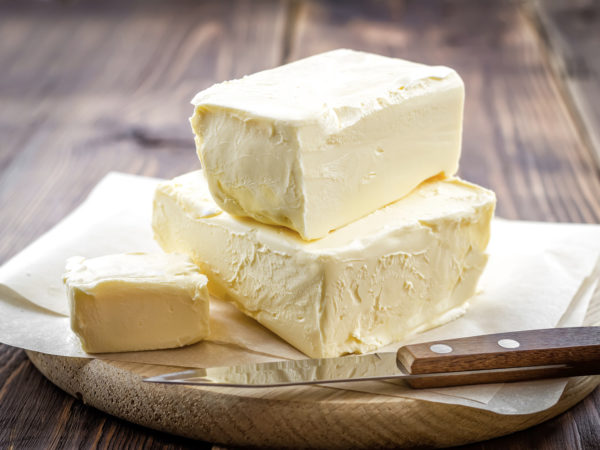Is Butter Or Margarine The Healthier Choice?

When it comes to spreads for your bread (whole grain, high-fiber versions of course!), I am a longtime proponent of extra virgin olive oil. Its heart-healthy fats are a much better choice than margarine. Margarine was originally developed as a cheap substitute for butter and has evolved from some high saturated fat animal-based ingredients into a vegetable oil-based spread with added chemicals that attempt to make it more flavorful and easier to spread. To achieve that solid, spreadable consistency, margarine manufacturers add hydrogenated vegetable oil, creating unhealthy compounds that may contribute to heart disease and stroke. In addition, the heat and chemicals used to harden vegetable oils produce trans-fatty acids (TFAs), which can contribute to heart disease, increase cancer risks, promote inflammation and accelerate tissue degeneration.
Butter is definitely the better choice of the two. In fact, some recent studies suggest that natural saturated fats, such as those found in butter, may not significantly contribute to cardiovascular disease, though further study and moderating your intake is warranted. In any case, butter is clearly more of a whole food than margarine or other industrial oil-based spreads. If you must opt for a spread that is not extra virgin olive oil, I suggest moderate amounts of grass-fed, organic butter. Also be cautious of store-bought spreads that promote olive oil as an ingredient. Olive oil is generally a minor ingredient while the rest of the fats are essentially margarine.
Today’s Health Topics
Editor's Pick
Health Focus
Ask Dr. Weil's Q&A
| sponsor |
| Visit Our Origins Shop! |
| Dr. Weil believes inflammation is the root cause of visible skin concerns like irritation. He also believes mushrooms have the power to fight irritation. That's why he partnered with Origins to create these Mega-Mushroom Formulas. |










